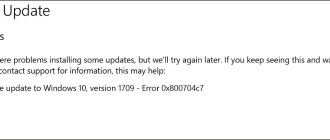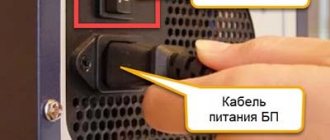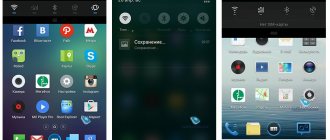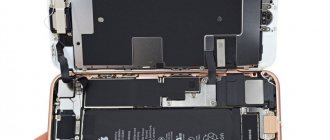Published on 07/04/2017 1 Comments
Windows 10 is considered the most secure system among Microsoft products, and many confident users refuse to install antivirus programs at all. Despite this, people who are less experienced in working with computers are still recommended to use security software. Which antivirus to choose is a separate question, the answer to which must be based not only on the capabilities of your computer, but also on the requirements for the antivirus, the nature of work on a particular computer and a number of other factors.
- 2 What to choose for a computer or laptop running Windows 10
2.1 Free third-party programs2.1.1 BitDefender Free Antivirus: fast and easy
- 2.1.2 Avast Free Anivirus: reliable defender in bright colors
- 2.1.3 AVG Anti-Virus Free Edition: beautiful background and virus protection
- 2.1.4 Comodo Internet Security: many additional features
- 2.1.5 Video: how to choose a free antivirus
- 2.2.1 Kaspersky Internet Security: the most famous antivirus in Russia
- 3.1 Video: how to choose a good antivirus for a smartphone
Windows 10 itself is quite secure
Modern Windows 10 is quite resistant to viruses, and security holes are closed in a timely manner with the help of patches. Of course, provided that you have automatic updates enabled. Therefore, there is no need to disable it because it supposedly slows down the computer.
In addition, Windows 10 has a UAC (User Account Control) feature designed to ensure that no applications can be installed without your knowledge. At the right time, the system displays a window asking whether to allow this program to make changes, and displays whether the publisher is trustworthy.
The Internet is full of guides on how to turn it off, because it is so “annoying”.
However, keep in mind that only not very smart people will follow these tips: Windows 10 knows better how to protect itself. And the best way to keep your computer as secure as possible is to make as few changes to Settings as possible.
What is Windows Defender and what security can it guarantee?
Let me start with the fact that the Windows 10 operating system does not pester users with the requirement to install an antivirus. All previous versions (Windows XP, 7, etc.) were not released with built-in utilities to protect them. While the new OS includes standard software - Windows Defender.
This is a utility designed to ensure the security of a laptop, computer or other device with the tenth version of Windows installed. This is the newest version of Microsoft Security Essentials, a completely free software released by Microsoft. Now a newer version of the application is built into the operating system. Defender will be able to guarantee the user a basic level of protection against malware or viruses. The application turns on automatically when the system starts. Capable of carrying out a thorough and high-quality check of all programs launched by the user on a PC.
The update process in Windows Defender is completely automatic. This antivirus utility has a beautiful and user-friendly interface, in addition, it is very easy to use. But is it possible to do without an antivirus, the popularity and reliability of which is a level higher? — No one can give a specific answer to this question, but I will try to describe this program as accurately as possible.
Windows 10 has its own antivirus
In the days of Windows 7, we searched for "best free antivirus" or paid for a subscription. But with the advent of Windows 10, there is no need for this, because it has its own built-in Windows Security antivirus.
It is quite effective [An independent laboratory recognized Windows Defender as the best free antivirus, HOME ANTIMALWARE PROTECTION JUL - SEP 2020 and does not slow down the system.
The antivirus has a firewall and a SmartScreen filter for unreliable applications. And the program does not require any additional actions or settings, it just works.
Nevertheless, a huge number of users are eager to disable it and install some other antivirus - apparently out of habit. Don't do this. "Windows Security" is enough - there is no need for additional solutions.
Arguments for
Now let’s voice the arguments of those who, when asked whether Windows 10 needs a third-party antivirus or not, are categorically FOR!
- If the hardware allows it, additional protection is needed. Fraudsters are so sophisticated these days that upgrading your security certainly won't hurt;
- Good anti-virus software with excellent protection options for surfing the Internet is a must for people who are forced to regularly open new links sent to them, make a lot of online payments, and visit unfamiliar resources;
- Additional protection is needed for organizations where it is important to provide an excellent level of information protection. And also for companies that may become a potential target of interest for various hacker groups.
So, is it necessary to install an antivirus on Windows 10, let's draw a conclusion! Yes, such utilities really load the system, are full of advertising, overloaded with options, annoyingly offer paid features and often respond to false alarms. The native antivirus on a laptop with Windows 10 practically does not take away from the operating system’s performance, reliably catches viruses and blocks dangerous sites. Therefore, the final decision should be made based on your circumstances. The more risky your online activities, the more you need additional security software, and vice versa. In a word, find that golden mean between reasonable necessity and paranoid delirium. Good luck with your decisions!
In Linux and macOS, you still need to look for viruses
The actions of Windows users who install an antivirus are generally more or less clear. But when the owner of a computer with Linux or macOS downloads a special version of the defender for his system, this no longer lends itself to any logic.
Firstly, these operating systems are much less common than Windows, and their attractiveness to virus creators is not as high. Secondly, Linux and macOS are well protected. In the first, for each action affecting the system, confirmation is requested by entering the administrator password, and in the second, the built-in Gatekeeper and XProtect protect you.
By default, applications on Linux and macOS are installed from trusted repositories or the App Store, which also virtually eliminates the threat of infection.
So, if you use Linux or Mac, forget about any ESET NOD32 Antivirus for Linux Desktop or Avast Security for Mac. Even on Windows, their necessity is questionable at best, and here they are completely useless.
...as in Android and iOS
Disputes regularly arise on the Internet about which smartphone antivirus is better and which operating system is more vulnerable to malware. However, discussions are pointless: you don’t need these programs on smartphones either, because both Android and iOS are equally well protected.
And almost 40% of applications presented on Google Play under the guise of antiviruses, according to Android Test 2020 - 250 Apps AV‑Comparatives, are completely useless.
To stay safe, you need to follow three simple rules. First: do not download or install applications from third-party sources other than Google Play and the App Store. Second: do not go to suspicious sites that bombard you with “Update the application” and “Speed up the system” banners. Third: update your applications and system promptly. That's all.
Basic rules for working on the Internet
What is best to put on your computer, everyone will decide for themselves. There is no single recipe in this matter. Even the best antivirus products cannot be considered an absolute panacea for the threat. To completely protect your PC, you should follow simple rules for working on the Internet:
- There is no need to download programs from an unverified site. It is recommended to use only proven products about which there is information on Wikipedia. At the same time, you should only work on official websites. The link to official resources is located at the top of the articles in the right column. Unfortunately, search engines do not make it possible to distinguish the authenticity of a site.
- There is no need to click on a suspicious link, especially on an unverified site or in a letter from a suspicious addressee.
- It is not recommended to use hacked programs with activators. As a rule, every paid program has a free analogue, and if there is none, and the product is very necessary, then you will have to buy it.
- It is necessary to develop the habit of thoroughly scanning your PC for viruses at least once a week. This is especially true for those users who actively work online every day. For complete reliability, you can additionally check it with the free Dr.Web Cureit utility at the end.
These are all proven precautions that have stood the test of time. They enable a computer running Windows 10 to be protected in all situations.
Whether or not to install additional protection on a computer or laptop is a question that is in constant debate. Therefore, each user is faced with the need to make an independent decision. In general, the program used in the “ten” allows you to reliably protect yourself and solves its problems effectively. This program is regularly updated and all this is done automatically.
If you carefully study and remember these recommendations, then it is quite possible to work without third-party antiviruses. In this case, you will be able to visit a huge number of sites and install different programs. An additional antivirus program can be installed once every six months to additionally scan the PC for threats.
Antiviruses steal your personal data
Yes, your antivirus is spying on you. It was recently revealed that Avast and AVG are collecting your browsing history and online activity and then selling it to marketers interested in feeding you more advertising.
And if you think that only free products that need to be monetized in some way are guilty of this, then you are mistaken.
Kaspersky Internet Security openly admits the provision of data when the program is running, which can read your correspondence on social networks and browser history. And the domestic antivirus has already been caught spying on Kaspersky AV injected unique ID that allowed sites to track users, even in incognito mode, behind users, even when they were using the browser in Incognito mode.
List of the best antiviruses for Windows 10
Users who have recently started using the latest version of the operating system are asking how to more effectively protect their PC. For this purpose, the modern market offers a lot of options. In such a situation, a natural question arises, which of them is the most optimal.
Of course, the easiest way out is to download and install one of the free versions. Only, you need to understand that their effectiveness is an order of magnitude lower. For this reason, professionals recommend installing one of the paid programs. The following software products have gained the highest popularity among users:
- Kaspersky Lab;
- AVG;
- AhnLab;
- Avast.
Antiviruses are distributed dishonestly
For the sake of money, antivirus creators resort to some pretty nasty tricks. Their products, when installed, change your default search engine and insert unnecessary extensions into your browser. Or even the browser itself is changed to another one. They install their own home page and various toolbars from their partners, and sell all sorts of junk applications that you don’t need.
And sometimes the antivirus downloads itself if you forget to uncheck the box in some installer.
Beware is guilty of similar things: Free Antivirus Isn't Really Free Anymore Comodo, Ad‑Aware, Avira, ZoneAlarm, Panda, Avast and AVG. It would seem that antiviruses should help clean your computer of all junk, but instead they install their own. And even Unchecky doesn’t always save you.
In addition, the creators of the antivirus will do anything to force you to buy the paid version. The developers of the same Kaspersky, for example, were once caught by Kaspersky Antivirus accused of creating fake malware for over 10 years for creating fake viruses for 10 years in order to improve statistics.
Antiviruses are overloaded with functions and slow down the system
Any antivirus will impose a bunch of unnecessary functions on you. Password manager, browser extension, system cleaner, parental controls, VPN, online support, remote control...
Why do all this in a program from which you need one thing: that it protects against malware on the Internet and does not distract? These endless bells and whistles only serve to bloat the antivirus package beyond capacity. In addition, they also have a negative impact on productivity.
Let's weigh the pros and cons
If we collect all the information about the program into one whole, we can say that Defender is capable of providing good protection. By constantly updating its databases, using only reliable and proven browsers, and following all basic security rules, Windows Defender will be able to cope with its task with an A plus.
And even despite the rather low score obtained during many tests, this program, like Kaspersky Anti-Virus, was able to successfully recognize all the most potentially dangerous threats (close to 95% of the entire stream). These numbers indicate the good reliability of this antivirus program. As its developers reported, first of all, all efforts were aimed at creating a utility that responds well to the most common viruses on the Internet. And the Defender program coped with this task perfectly.
Do you want to know all the ways to disable the built-in security software in Windows 10? >>>
Antiviruses are annoying and full of ads
After installation, the antivirus begins to constantly bombard you with pop-up messages. “I found a suspicious file. What should I do?”, “I blocked a new application. Unblock?", "I've updated. Hurray!”, “Exclusive offer! Upgrade to a paid subscription...” And it’s annoying.
Especially with frequent false positives, when the antivirus stubbornly blocks an absolutely safe application.
In addition, antiviruses drive you crazy with advertisements: “Upgrade to the Pro version” and “Get additional protection” flash in the main window, in settings, and in notifications.
The built-in Windows Security antivirus won't distract you. It only periodically reports background scan results, but this feature is easy to disable. Stealth is an excellent quality for a system tool.
What is an antivirus and what is it for?
First of all, you need to understand that any antivirus is a program that continuously scans the device while working on it, promptly detects any sites or codes that may be unwanted, dangerous or malicious, and warns the PC user about them. Antiviruses are also capable of finding existing viruses, neutralizing them and restoring files damaged by them.
Windows Defender is available on every OS version 10
What is it for? First of all, for the safety of user data: logins and passwords, phone numbers and addresses, as well as all files stored on the device. The second important point is that the antivirus protects the computer itself, that is, the software and the very hardware of which it consists. Some malicious codes can damage motherboards, hard drives, graphics and sound cards, and other parts.
Note! You can catch a virus on any website, or in any file you download or open.
Antiviruses don't help
Remember the WannaCry virus epidemic? It encrypted your files and then extorted money for allegedly regaining access to them. And there were also the invasions of Petya, SyncCrypt, Osiris and Bad Rabbit. And antiviruses could not stop them in any way - simply because they were not familiar with them.
Windows 10 now has an anti-ransomware feature. It's called "Controlled Folder Access". This is a completely reliable method, but not the only one. What will really save you from all threats are backups.
Configure automatic creation of backup copies of important files, and you will not be afraid of ransomware.
If there is another ransomware epidemic, antivirus fans will sit and wait for Kaspersky to figure it out and release a decryptor. And those who have a backup will recover in 10 minutes and continue working.
Stop spending money on a subscription or downloading free packages: antiviruses are absolutely useless, and even harmful for inexperienced users. Keep your system and browser up to date, use an ad blocker, do not visit suspicious sites, create backups, use strong passwords - and everything will be fine.
Arguments against
But let's get back to our question! Is it necessary to install an additional antivirus on Windows 10, let's listen to the arguments AGAINST.
- If you don't have a very powerful laptop, you don't need additional antivirus programs. In any case, it will not be possible to install strong software. And the lightweight one will load the operating system, take up space on the hard drive, and at the same time, will not do anything that the standard Windows Defender can do;
- For normal home use, no additional protection is needed. Of course, if the user is good at digital hygiene. Does not follow suspicious links, does not sit on dangerous sites, does not download everything from illegal resources, etc.;
- In the settings of any browser there are many additional options for blocking malicious sites. You can also install auxiliary plugins and extensions. Safe surfing on Win 10 is possible without a third-party antivirus;
- The default Windows 10 Defender is updated regularly. According to the developers, it successfully blocks 98% of threats;
- Another advantage of a native antivirus is the low percentage of false positives. He extremely rarely “swears” just like that;
- It is believed that third-party antivirus programs steal their users’ data (browser history, information about online activities) and then transfer it to marketers.
You may be interested in: Your phone is listening to you: indisputable evidence and methods of salvation











